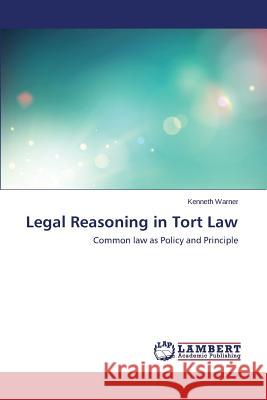Legal Reasoning in Tort Law » książka
Legal Reasoning in Tort Law
ISBN-13: 9783659590818 / Angielski / Miękka / 2014 / 160 str.
The author considers the positivist perspective on law as a system of rules, together with the conventional view of legal decisions as possessed of binding force, and concludes that this does not characterise the reasoning process in tort law. Rather the history of the case-law displays often the importance of the influence of principle and policy on the process of decision-making, and the direction of the law. Very rarely can tort law be seen to represent the consistent application of rules together with a stipulated outcome. The key starting-point for a line of common-law development in tort, which must be a product of policy, is the creation of a category of liability. Thereafter, influences on the further development of the law are variable. But it is a complex process in which subsequent decisions realistically have to be seen as creatively adding to the story as law in action, rather than as themselves determined by the precedent.
The author considers the positivist perspective on law as a system of rules, together with the conventional view of legal decisions as possessed of binding force, and concludes that this does not characterise the reasoning process in tort law. Rather the history of the case-law displays often the importance of the influence of principle and policy on the process of decision-making, and the direction of the law. Very rarely can tort law be seen to represent the consistent application of rules together with a stipulated outcome. The key starting-point for a line of common-law development in tort, which must be a product of policy, is the creation of a category of liability. Thereafter, influences on the further development of the law are variable. But it is a complex process in which subsequent decisions realistically have to be seen as creatively adding to the story as law in action, rather than as themselves determined by the precedent.











